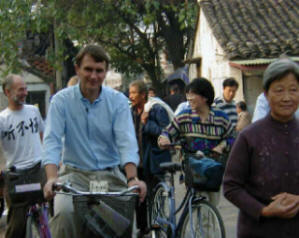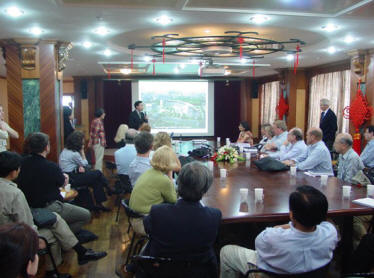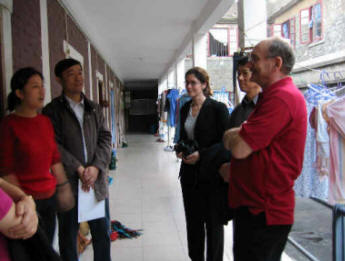The
International Forum
CHINA
Shanghai,
Hangzhou and Wuhan
April 18-22, 2005
.jpg)
"There is chaos under Heaven, and the situation is excellent" - Mao Tse-Tung
For the outsider, what is happening in China may appear chaotic. But it is the lens through which we look at China that often makes it seem as such. In truth, what some perceive as chaos, many others see as an excellent opportunity. So how does one learn to lead an organization in such an environment if our perspectives are so different?
Introduction to The International Forum in China:
The International Forum in China is for executives who lead a global business here, in the region or who are responsible for the strategic direction of their firms worldwide. This Forum is an opportunity for participants to learn from others who have business interests in China and how the changes taking place here will affect their personal and professional choices in the future.
Participants in the program learn from each other and from leaders in business, government, education, the arts, medicine and society. The program is designed for participants to gain a first hand understanding of the culture and the changes taking place in China today. These "encounters" with people are face-to-face, informal and wherever possible, in their own environment, so that all may understand more clearly and see first-hand the complexity of the challenges and opportunities in China today.
"How do you
think about China? What is the lens through which you look at what is
happening here? First you must 'know yourself" and from there you can
assess what you encounter in China"
-Clinton Dines, President, BHPbilliton China
Encounters with people across China also provide a lens through which to view our own organizations, cultures and countries and in so doing gain a greater understanding of ourselves.
The International Forum creates programs which challenge leaders to learn more about themselves and the world outside their organizations. Our programs combine an in-depth and on-the-ground learning experience of markets and societies in the world that are of strategic importance to participants, while also providing a time for introspection and learning about oneself as a leader. Programs like The International Forum in China emphasize learning from other leaders in many disciplines either through encounters with them or in hands-on experiential learning. The International Forum has been creating Active Learning experiences for leaders all over the world since 1988.

